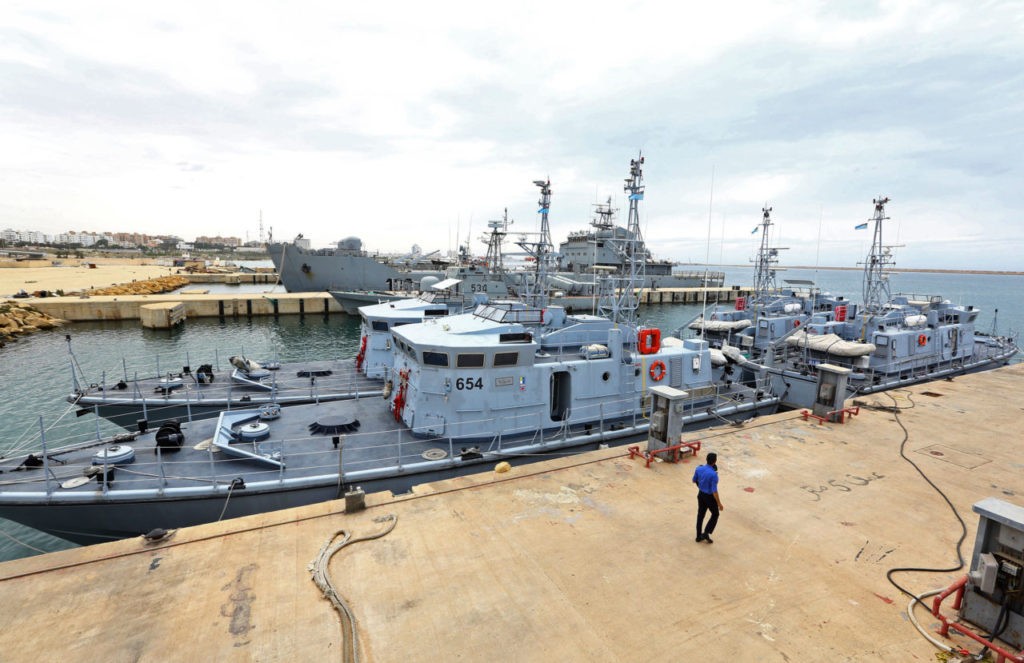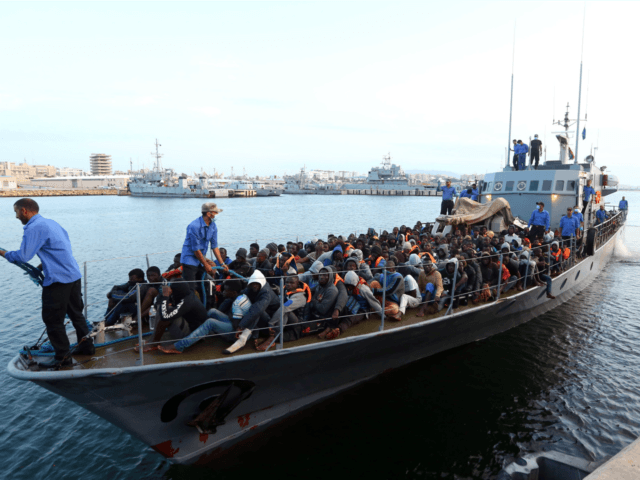CAIRO (AP) — The commander of Libya’s self-styled national army in the country’s east has ordered naval and air forces to confront any vessel entering the country’s territorial waters without permission, after Italy began a naval mission to help stem a popular migration route at the behest of the U.N.-backed government in the west.
The move signals unresolved tensions between the two rival leaders, Field Marshal Khalifa Hifter and Prime Minister Fayez Serraj, who pledged to cooperate at a meeting outside Paris last week.
In two statements released by Hifter’s LNA on its Facebook page late Wednesday, Hifter directed his command to eastern naval bases in Benghazi, Ras Lanuf, Tobruk, as well as the capital Tripoli, in the west, and the air force after an Italian patrol boat arrived there. The command excluded authorized trade ships.
Italy’s Parliament approved the naval mission to help the Libyan coast guard curb the flow of hundreds of thousands of migrants from Africa and elsewhere crossing the Mediterranean to Europe.
The U.N. migration agency reported in August that the number of migrants and refugees travelling via the Mediterranean exceeded 114,000 since the beginning of 2017 until July 30, with almost 85 percent arriving in Italy.

A general view shows four Libyan Coast Guard ships docked in the harbour of the capital Tripoli, following their return after undergoing maintenance in Italy on May 15, 2017. (MAHMUD TURKIA/AFP/Getty)
Italian Premier Paolo Gentiloni said Italy’s deployment responded to a request by the Tripoli-based government, which later denied striking a deal with the Italians.
Libya’s eastern-based parliament, which is also recognized internationally, is a rival to Tripoli and is allied with Hifter. It saw the move as a “violation of the sovereignty of Libya” that aims at “exporting the illegal migration crisis to Libya” by sending thousands of migrants back to the country.
At the meeting hosted by French President Emmanuel Macron last week, Hiftar and Serraj committed themselves to a ceasefire, to work toward presidential and parliamentary elections, and to establish a roadmap to secure lawless Libya against terrorism and trafficking of all kinds.
Libya has descended into chaos following the 2011 civil war that ended with the overthrow and killing of longtime dictator Moammar Gadhafi. The country has been split into two, with the competing institutions in east and west each backed by a set of militias, tribes and political factions.

COMMENTS
Please let us know if you're having issues with commenting.